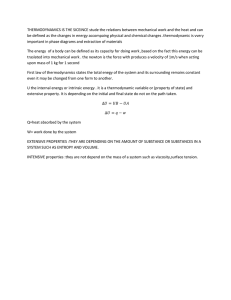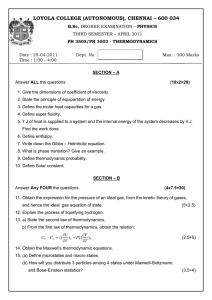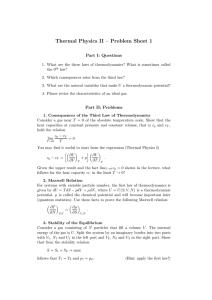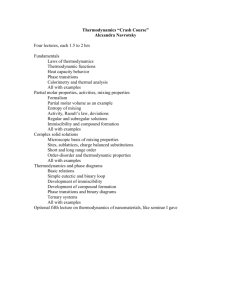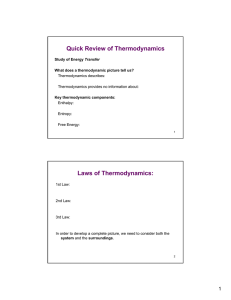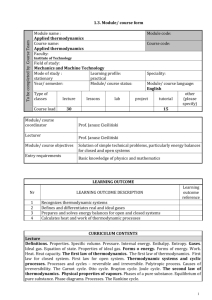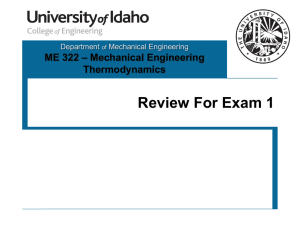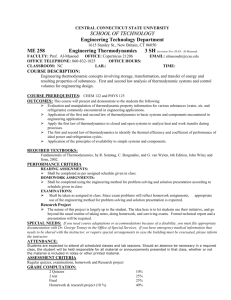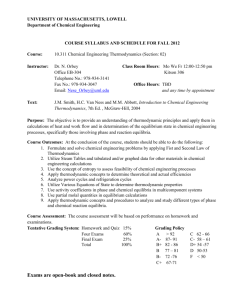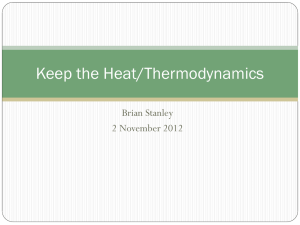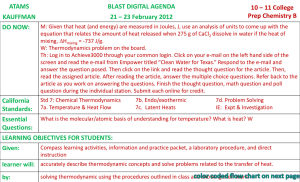MET 1201 Thermodynamics
advertisement
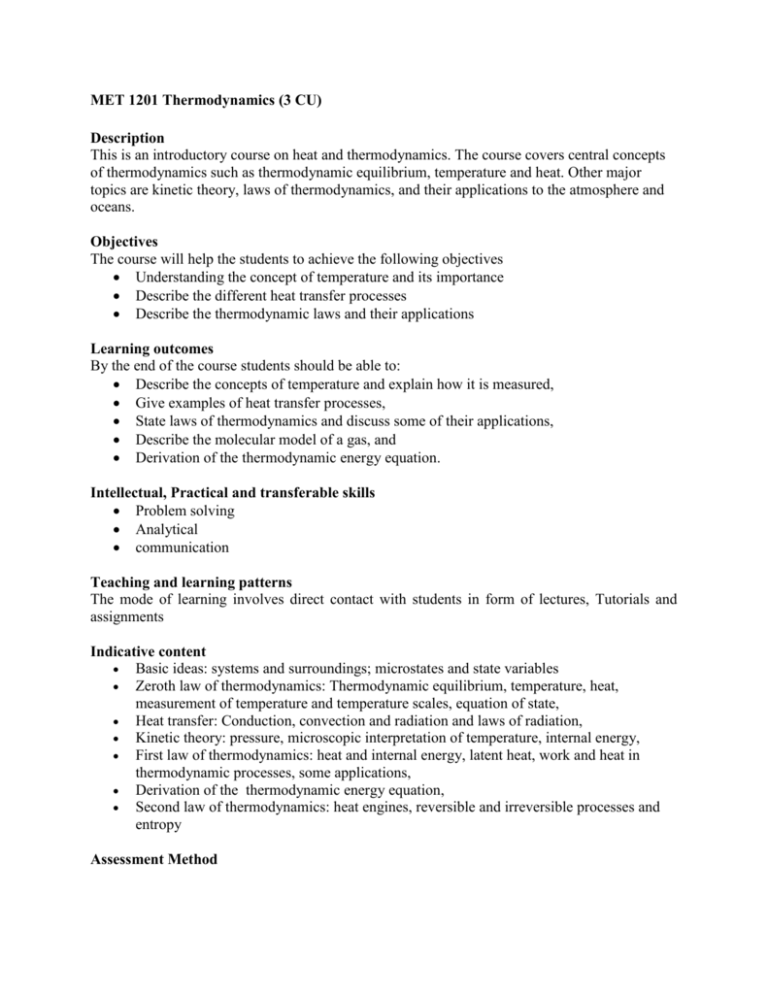
MET 1201 Thermodynamics (3 CU) Description This is an introductory course on heat and thermodynamics. The course covers central concepts of thermodynamics such as thermodynamic equilibrium, temperature and heat. Other major topics are kinetic theory, laws of thermodynamics, and their applications to the atmosphere and oceans. Objectives The course will help the students to achieve the following objectives Understanding the concept of temperature and its importance Describe the different heat transfer processes Describe the thermodynamic laws and their applications Learning outcomes By the end of the course students should be able to: Describe the concepts of temperature and explain how it is measured, Give examples of heat transfer processes, State laws of thermodynamics and discuss some of their applications, Describe the molecular model of a gas, and Derivation of the thermodynamic energy equation. Intellectual, Practical and transferable skills Problem solving Analytical communication Teaching and learning patterns The mode of learning involves direct contact with students in form of lectures, Tutorials and assignments Indicative content Basic ideas: systems and surroundings; microstates and state variables Zeroth law of thermodynamics: Thermodynamic equilibrium, temperature, heat, measurement of temperature and temperature scales, equation of state, Heat transfer: Conduction, convection and radiation and laws of radiation, Kinetic theory: pressure, microscopic interpretation of temperature, internal energy, First law of thermodynamics: heat and internal energy, latent heat, work and heat in thermodynamic processes, some applications, Derivation of the thermodynamic energy equation, Second law of thermodynamics: heat engines, reversible and irreversible processes and entropy Assessment Method The assessment method is structured to include course work, and final examination. Course work consists of assignments, reports and tests and accounts for 30% of the final grade. The final examination will account for 70% of the final grading Core Reference materials Seymour L. Hess (1979): Introduction to Theoretical Meteorology, R.E. Krieger Pub. Co. Tritton D. J. (1988): Physical Fluid Dynamics, Clarendon Press
